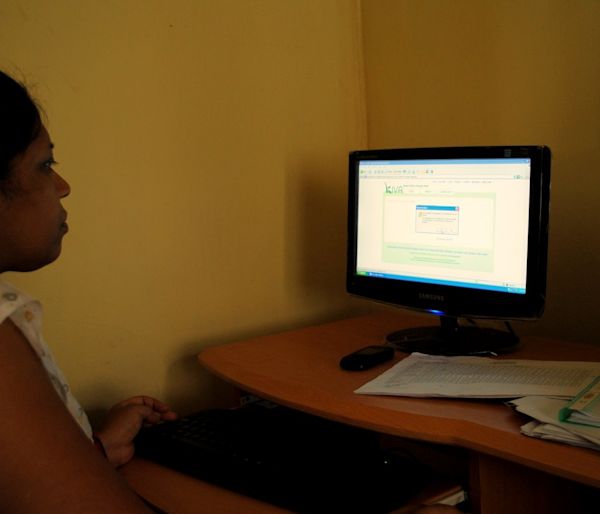
By Brian Kelly, KF10, Sri Lanka
Sometimes you think you are equipped to take on a difficult situation and use your experience and skills to dive in headfirst and solve it, or at least provide some help to improve upon the current status quo. It may be a situation you’ve seen before, or one where you know your skill set or knowledge is applicable to improve it – at least if you were tackling this problem in a familiar and native environment. And that’s exactly the problem right there, and why as a Fellow I’m having to throw some things out the window.
In October I came right from the overworked office life of public accountants bustling about in tall shiny skyscrapers. We used and heard words like ‘will you pdf that to me?’, ‘draw up a process map’, or ‘run an amortization schedule in excel’ everyday. Every employee was armed with a laptop, and within 6 months nearly everyone becomes an excel wizard. Literacy in Microsoft Office, the internet, and all other things technology is completely assumed as a given to be in EVERYONE’s arsenal. So naturally these tools get used a lot in day-to-day work, pretty much for everything we did.
So its been a real adjustment for me jumping into an office world where 80% of the work is done manually by hand in ledger books and stacks upon stacks of folders containing client records occupy every office. My job here has been primarily to help put in place a system that will allow Kiva to be easily implemented alongside the current daily operations. So instinctively when I got here I rolled up my sleeves, put on my planning hat, and went straight to my laptop.
I was all ready to deploy my fancy formulafied excel spreadsheets and checkbox-filled word templates to the field and help get this pilot MFI up and fundraising in a matter of no time. But it turns out that this is much easier said than done. Or maybe its actually easier done than said, because its really about just doing it rather than using shiny tools to plan out how it should be done. Getting out there and discovering the most effective methods for the local organization has supplanted trying to plan it all from a laptop with my former public accounting problem-solving mindset.
I quickly discovered that all my former ways of getting things done and my prior efficiency-boosting tools actually just created more work. In fact I have thrown all my tools out the window. Because it turns out that instead of a multi-tabbed Excel workbook to demonstrate how to create a repayment schedule that factors in the countless and unpredictable Sri Lankan holidays, instead a thoughtful step-by-step 1 on 1 training might do the trick. While it may take twice as long, taking the time to really ensure that I’m passing off all of my Kiva knowledge so the MFI staff here truly understand it is the best tool I have at my disposal. Then they can create their own workbooks, use manual books, invent pop-up books, or whatever they want.
I’ve learned that any sort of training or transfer of knowledge must be completely tailored and suited to the learner, which may sound glaringly obvious. But it doesn’t seem to be carried out in practice in many organizations all over the world; I know it wasn’t at my former job as I snoozed through every training on account of a major disconnect between the trainers’ way of presenting their material and understanding us trainees. Once you’ve effectively passed on what you know, the members of the organization can then run with it how they please. And there is a beauty to the simplicity of ignoring lots of the technological tools (at least initially), because you ensure that the trainee understands the process, which is really the key to the pot of gold at the end of the rainbow. (is it too late for a st. patty’s reference? never) Because what happens when my fancy if-statement-layered spreadsheet breaks down as excel loves to do, and needs a quick formula fix? Then all my work has proven completely useless, just a couple weeks after I return back to my macro-enabled workbook skyscrapers.
It has been a definite challenge having to give up the familiarity of my technical tools, so my primary goal I keep reminding myself of is to just start everything simply and then build. And when you start with simplicity, the best local solutions seem to arise organically. And I think this can be used as a much grander metaphor for development projects in general, worldwide and across all industries. Becoming well-versed with the local methods of effective getting-it-done-itness while being immersed in the day-to-day operations is the only way to really become a part of the processes. And then from there, after building from the basics, you can start to figure out whether the manual or automated solutions are best for your situation. Chances are you can get the job done without a fancy spreadsheet, even if it is hard habit to give up…
Brian Kelly is a member of KF10 working with pilot partner BRAC Sri Lanka. To support a Sri Lankan loan, go here! To join the Sri Lankan lending team, check out this link.
PREVIOUS ARTICLE
Healthy Lending →NEXT ARTICLE
Lender Profile: Young Lender Making a Difference at Kiva →















